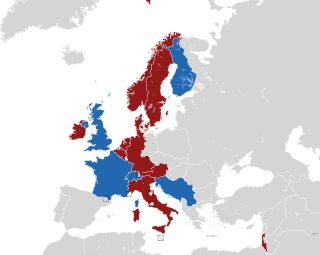
Eurovision Young Musicians, often shortened to EYM, or Young Musicians, is a biennial classical music competition for European musicians that are aged between 12 and 21. It is organised by the European Broadcasting Union (EBU) and broadcast on television throughout Europe, with some countries holding national selections to choose their representatives for the contest.

The Eurovision Young Musicians 1986 was the third edition of the Eurovision Young Musicians, held at the Koncerthuset, in Copenhagen, Denmark on 27 May 1986. Organised by the European Broadcasting Union (EBU) and host broadcaster Danmarks Radio (DR), musicians from five countries participated in the televised final. Despite the contest being held in Copenhagen, host country Denmark failed to qualify for the final alongside Germany, Austria, Israel, Belgium, Norway, Ireland, Sweden, Netherlands and Italy. The participant artists could not be older than 19 by the time of the contest. The finalists were all accompanied by the Danish Radio Symphony Orchestra under the leadership of Hans Graf.

The Eurovision Young Musicians 1982 was the first edition of the Eurovision Young Musicians, a biennial event inspired by the success of the BBC Young Musician of the Year. The contest took place at the Free Trade Hall in Manchester, United Kingdom on 11 May 1982, and was organised by the European Broadcasting Union (EBU) and host broadcaster the British Broadcasting Corporation (BBC). Musicians from six participating countries took part in début contest, which was televised across the Eurovision Network. Humphrey Burton was the host of the contest and welcomed all of the participants in English, French, and German.

Dafna Dekel is an Israeli singer.

The participation of Israel in the Junior Eurovision Song Contest first began in Amsterdam, Netherlands, at the Junior Eurovision Song Contest 2012. The Israel Broadcasting Authority (IBA) a member organisation of the European Broadcasting Union (EBU) were responsible for the selection process of their participation in 2012 and 2016, with the Israeli Public Broadcasting Corporation (IPBC) taking over participation from 2018. The first representative to participate for the nation was Kids.il with the song "Let the Music Win", which finished in eighth place out of twelve participating entries, achieving a score of 68 points. Israel did not return to the contest in 2013, and also sat out of the 2014 and 2015 contests. However, following their success at the 2015 and 2016 Eurovision Song Contests, the IBA expressed an interest in making a return to competing at Junior Eurovision. Israel returned to the contest in 2016, with their entrant being selected internally. Israel then withdrew from the contest in 2017, before returning again in 2018, and withdrawing again in 2019.

Austria has participated in the biennial classical music competition Eurovision Young Musicians 19 times since its debut in 1982 and is the most successful country in the contest, with a total of five wins. Austria has hosted the contest a record six times, in 1990, 1998, 2006, 2008, 2010 and 2012.

The United Kingdom has participated in the biennial classical music competition Eurovision Young Musicians sixteen times since its debut in 1982, most recently taking part in 2018 after a 8-year absence. The United Kingdom hosted the inaugural contest in 1982 and won the contest in 1994. The country returned to the contest in 2018 as hosts, but did not return for the next edition in 2022.

Norway has participated in the biennial classical music competition Eurovision Young Musicians 19 times since its debut in 1982, winning the contest for the first time in 2012. Norway did not officially take part in 1984, the only contest the country has missed as of 2022. It hosted the contest in 2000 and will do so again in 2024.

Poland has participated in the Eurovision Young Musicians 14 times since its debut in 1992 and has won the contest three times to date. Poland hosted the contest in 1994.

Sweden has participated in the biennial classical music competition Eurovision Young Musicians 14 times since its debut in 1986, winning the contest for the first time in 2006. Sweden are yet to host the contest.

France has participated in the biennial classical music competition Eurovision Young Musicians ten times since its debut in 1982. France won the contest in 1986, and hosted the most recent event in 2022 in Montpellier.

Finland has participated in the biennial classical music competition Eurovision Young Musicians 13 times since its debut in 1984, most recently taking part in 2008. The country's best result is three second-place finishes, in 1984, 2000 and 2008.

Portugal has participated in the biennial classical music competition Eurovision Young Musicians 4 times since its debut in 1990 and are yet to receive a top 3 placing in any contest. Portugal hosted the contest in 1996. Portugal previously attempted to take part in 1986, but were forced to withdraw as it had been unable to provide a "qualified candidate".

Belgium has participated in the biennial classical music competition Eurovision Young Musicians 10 times since its debut in 1986, most recently taking part in 2022. The country's best result is two second-place finishes, in 1990 and 1992; two of only three years in which the country has qualified for the televised final. Belgium hosted the contest in 1992.

Italy has participated in the biennial classical music competition Eurovision Young Musicians 4 times since its debut in 1986, most recently taking part in 2002.

Yugoslavia participated in the biennial classical music competition Eurovision Young Musicians 4 times, making their debut in 1986 and made appearances at every contest until its last in 1992.

Denmark has participated in the biennial classical music competition Eurovision Young Musicians six times since its debut in 1986, most recently taking part in 2002. Denmark hosted the contest in 1986.

Ireland has participated in the biennial classical music competition Eurovision Young Musicians 4 times since its debut in 1986, most recently taking part in 1994. Ireland have failed to reach the final in every contest to date.

The Eurovision Young Musicians 2016 was the eighteenth edition of the Eurovision Young Musicians contest, which took place on 3 September 2016, outside the Cologne Cathedral, in Cologne, Germany. For a second consecutive time, German public broadcaster Westdeutscher Rundfunk (WDR) was the host broadcaster for the event, with Daniel Hope and Tamina Kallert being the presenters for the show. Musicians representing eleven countries with European Broadcasting Union (EBU) membership, participated in the contest, with San Marino making their debut, while Greece, Moldova, Netherlands, and Portugal decided not to participate in this edition. The candidates were accompanied by the WDR Symphony Orchestra Cologne, conducted by Clemens Schuldt. A five-person jury decided which of the participants would be awarded with the top-three prizes. Łukasz Dyczko of Poland won the contest, with Czech Republic and Austria placing second and third respectively.

The Eurovision Young Musicians 2018 was the 19th edition of the Eurovision Young Musicians contest. It was hosted by the United Kingdom, for the first time since the inaugural contest in 1982. This edition was a co-production between the European Broadcasting Union (EBU), the Edinburgh International Festival and the British Broadcasting Corporation (BBC) as host broadcaster. Musicians representing eighteen countries with EBU membership participated in the contest, with Albania making their debut alongside seven returning countries, while Austria decided not to participate for the first time.




















